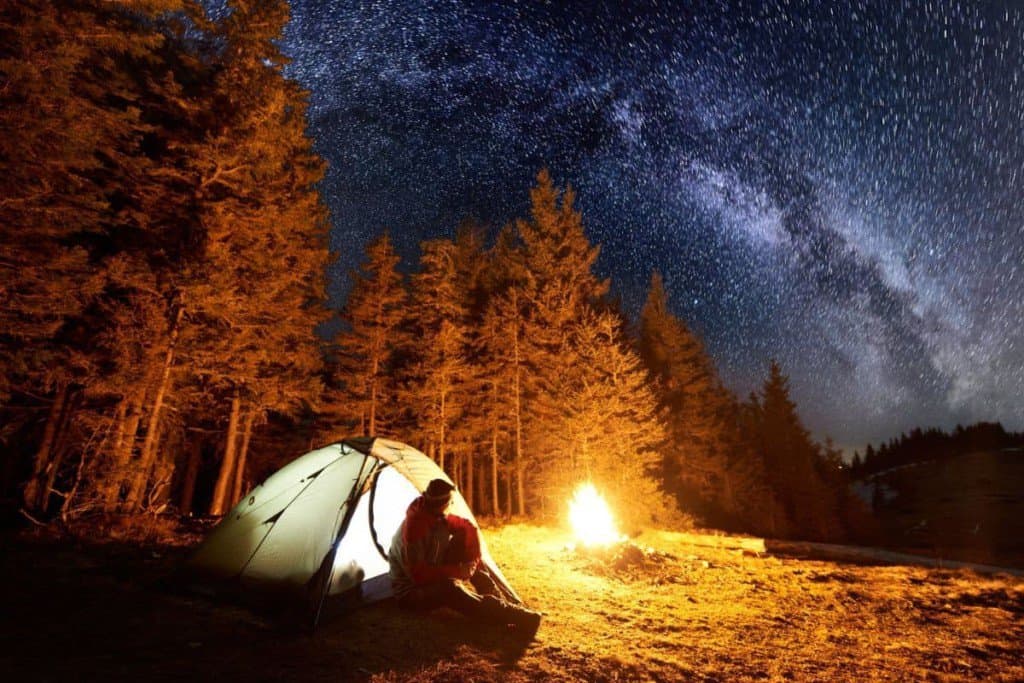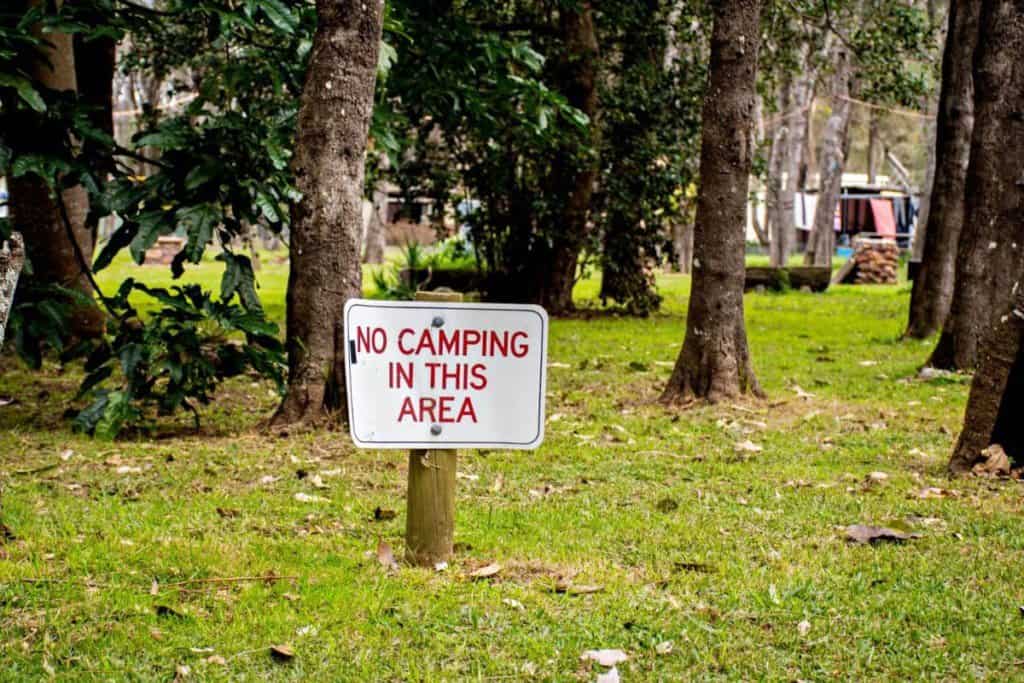Stealth camping may sound like something ninjas would do on the weekend. In reality, it’s an easy and discreet way to enjoy camping. Stealth campers leave no trace and do not disturb the natural environment.
Stealth camping is a style of outdoor camping that involves a tent, van, or caravan and doesn’t require permits or registration. The campers choose to spend the night outside in nature without being noticed by others. The entire process is about adapting to nature and living in the moment.
If you are new to stealth camping, there are several factors to consider before setting off. In this article, I will look at what stealth camping is and how to make it as enjoyable as possible.

Definition of Stealth Camping
Stealth camping is a way to camp without paying for a campsite. The term “stealth” is used because it refers to the idea of being undetected or unnoticed when camping.
To do so, you would need to find an area where you could park your car or pitch your tent and sleep in it overnight without being noticed.
You can do this on public land, but it isn’t always legal. It’s best to do some research before starting your journey so that you know whether or not it’s safe and possible where you want to go.
Why Would You Want To Stealth Camp?
The purpose of stealth camping is to enjoy nature without disturbing it or being disturbed by others. When you camp this way, you can experience nature differently.
Instead of staying at campgrounds and being surrounded by other people, when you practice stealth camping, you can get away from the crowds and enjoy some peace and quiet while still having access to all the benefits of camping (such as sleeping outside).
Many people enjoy spending time alone in the wilderness as a form of meditation, and stealth camping provides an opportunity to be at one with nature without being disturbed.
Is Stealth Camping Legal?
As a rule, you are allowed to camp in the United States National Forest unless there are signs which tell you otherwise. According to the National Forest Service, it is typically not allowed near developed recreation areas such as campsites and picnic areas.

If you are planning to stealth camp within a city, it is likely technically illegal as most cities in the US have laws against camping. However, these laws are rarely enforced, especially in smaller cities. By planning ahead and taking care to stay undetected, you should be able to avoid getting into trouble even if you do head to the city for camping.
Do Stealth Camping Laws Differ From State to State?
The laws surrounding stealth camping do vary from state to state and from city to city. Cities where homelessness is a big issue are more likely to enforce the laws, and you are more at risk of being fined or arrested. To avoid trouble, check ahead of time what the rules are in your city or state, and never camp in an area with ‘No Camping’ or ‘No Parking’ signs.
Essential Items for Stealth Camping
Stealth camping can be done in a number of ways. The most common way is by using a tent or van to sleep in. You will need a few essential items, though probably less than if you were camping traditionally. [Car Camping vs Tent Camping: Which Is Better?]
Here are a few of my top items to make stealth camping more straightforward and more comfortable:
- A good backpack is crucial for storing your essential camping items. This Osprey Talon 22 comes in two different sizes and five colors.
- Blend into your surroundings with this AquaQuest Hideaway Stealth Tent. It’s designed to be set up in two minutes and weighs only 2.4 pounds (1.09 kg).
- Instead of a traditional tent, camping tarps are a great option that provides shelter in minutes. This Aquaquest Safari Tarp comes in a range of stealthy colors.
For more essential camping items, check out my article, ‘Essentials for Rooftop Tent Camping.’
Stealth Camping Tips – How To Avoid Being Discovered
Stealth camping can be very rewarding, but there are some things to consider before you head out to ensure you remain undetected.
- Choose a spot off the beaten path. Look for a spot that is not visible from the trail. If you’re camping on a track, look for an area off the beaten path. It also helps if some trees or tall grass are nearby to conceal your tent and gear further.
- Don’t build a fire or do anything to attract attention. To prevent being detected by others, never start a fire or do anything that makes you stand out. It’s also important to remember that stealth camping is generally done at night, so try to stay quiet and avoid doing anything noisy. If you do leave any traces of your presence behind, ensure they are as small as possible and covered up, so they aren’t easily visible.
- Don’t stay in the same place twice. The key to successful stealth camping is to avoid being seen. If someone does spot you, they are more likely to be suspicious if they see you on more than one occasion. So keep moving on, choosing a new location every night to avoid the likelihood of being reported.
- Arrive late and leave early. To avoid being spotted, your best chance is to arrive at your location reasonably late in the day, when there will be fewer people in the area in general. Don’t arrive in total darkness unless you are familiar with the area. Similarly, leaving first thing in the morning will reduce your chances of passers-by spotting you.
- Travel alone. To increase your chances of stealth camping successfully, you should consider traveling alone. Traveling with others virtually guarantees that you will make noise, which increases your chances of being noticed significantly.
- Tidy up after yourself. Don’t forget that good stealth camping is about more than just staying hidden. You should also be careful not to leave any traces behind.
The people in charge look down on those who don’t take care of the land, so make sure that when you go out into nature for some good old-fashioned fun, it will still be there waiting for you when you come back (or at least until somebody else discovers it!)
Conclusion
Many people across the world enjoy stealth camping as a great way to get away from civilization and enjoy nature. Certain safety precautions should be taken into consideration before setting out on your journey, but with careful planning, stealth camping should be fun for everyone involved.
